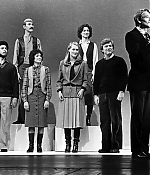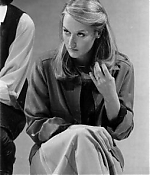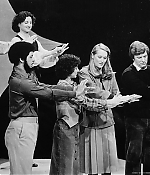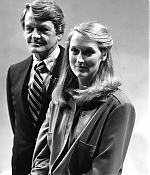|
Simply Streep is your premiere source on Meryl Streep's work on film, television and in the theatre - a career that has won her the praise to be one of the world's greatest working actresses. Created in 1999, we have built an extensive collection to discover Miss Streep's body of work through articles, photos and videos. Enjoy your stay.
|
Celebrating
25 years
of SimplyStreep
|
Omnibus
June 15, 1980
· ABC Television
· 90 minutes
|
What the creators of ABC’s “Omnibus” had in mind, Meryl Streep explains, was a recitation of “America the Beautiful” performed to the accompaniment of the National Theatre of the Deaf whose members would sign it. “At first,” she says, “I thought it was going to be very sentimental, a soapy kind of thing. It’s not that at all. It’s very clear and very beautiful.” Indeed, the performance, moving, often poignant, seems to bring greater meaning and eloquence to the time worn “America the Beautiful.” Meryl also signs the last stanza with the group and appears particularly adept at the art. “Meryl is wonderful, it’s magic,” says National Theatre member Ed Waterstreet, through the company’s interpreter Nikki Kilpatrick. “We don’t feel the separation. She has become part of us. She cares about the work, she doesn’t just imitate.” Meryl has followed the work of the National Theatre of the Deaf for many years, her interest strengthened by the fact that Elaine Bromka, the only speaking-hearing member of the company, is a long-time school chum (they attended Dartmouth together). “They use signing as total communication,” she offers. “They use it to express all sorts of subtleties, not just to get the words out. They make each voice different. They all sign differently, and I can see they all speak with their own voice. That’s very interesting to me. It was something I never thought of before.”













